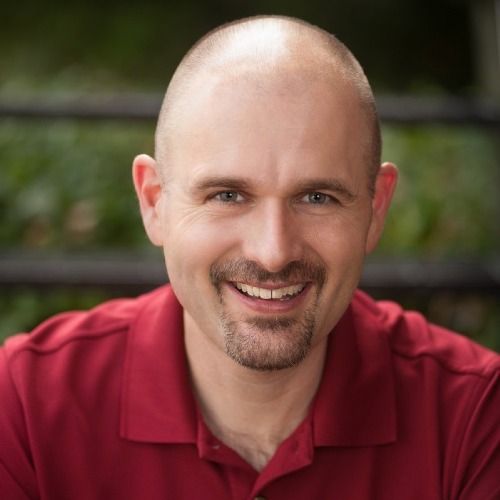What I Didn't Expect to Be the Hardest Goal
Setting personal goals can be a challenging journey, and sometimes the hardest goal isn't the one we initially expect. I delve into my relationship with goals and reveal that the most difficult challenge I've faced wasn't achieving my fitness milestones, but rather maintaining them.
While it was difficult to achieve weight and running goals, it ended up being the transition to sustaining the achievements that was an unexpdected struggle. Despite the initial victories, the discipline required to maintain progress often felt more daunting than the journey to get there.
Join me as I explore the nuances of goal-setting, the pressures we face, and the surprising lessons learned along the way.
Takeaways:
- How we think about goals can have an immense impact on whether we like them or hate them.
- Achieving a goal is often easier than maintaining the progress after success.
Chapters:
- 00:00 - Intro: The Hardest Personal Goal
- 00:06 - Reflecting on Goal Orientation
- 01:50 - The Challenge of Setting Goals
- 02:04 - My Sedentary Preferences
- 02:47 - Running Towards Change: The Five K Goal
- 03:28 - The Weight Loss Journey
- 05:30 - The Unexpected Difficulty of Maintenance Goals
- 06:44 - Conclusion: Lessons Learned
CONNECT & SHARE
- Find the Blog: https://bdentzy.com
- Podcast Website: https://promptedthoughts.captivate.fm
- Lightning/Nostr; ⚡️ toptieraudio@getalby.com
- Mastodon @bdentzy@mstdn.plus
- More ways to connect: https://gravatar.com/bdentzy
- Share the Show: https://episodes.fm/1772332130
- Two Click Listen & Follow: https://promptedthoughts.captivate.fm/listen
Copyright 2025 Bryan Entzminger
Mentioned in this episode:
Let's Connect
If you've lost your mind and want to connect with me, here's a link to make that possible.
Share the Show
If you like the show and WANT to share it, you can use this link. No pressure, though...
Transcript
Today's prompt is, what was the hardest personal goal you've set for yourself?
Speaker A:For the longest time, I've never really thought of myself as goal oriented.
Speaker A:I mean, I'd go through trainings to learn about smart or smarter goals or whatever they were called that day, and honestly, I kind of bristled at the thought of them.
Speaker A:On a personal level, I find it challenging sometimes to fully commit to just one other thing without also neglecting other areas of my life, which seems related to my personality.
Speaker A:At the same time, going through these kinds of trainings, it was not difficult to see that in the context of business, this could be, and was often used to say, well, these are the goals you set.
Speaker A:We're just holding you accountable to them.
Speaker A:But then sort of neglecting the fact that within that context, you weren't sort of given the freedom to truly set a goal that you wanted to achieve because there was a certain amount of social pressure to set the kinds of goals that you were expected, and then to allow someone to push you to set them higher than maybe you were comfortable or wanted to.
Speaker A:So while it was true, yes, these were the goals that were put down on paper, sometimes they weren't really your goals.
Speaker A:Thankfully.
Speaker A:At least now I've largely moved past that perspective.
Speaker A:I'm not saying it's not true.
Speaker A:I've just kind of moved past that perspective, at least mostly.
Speaker A:And I think that I have a much healthier relationship with goals, specifically in a business context, because I finally find myself now with my.
Speaker A:With my day job at a place where I can set goals that I think are meaningful for me and the company, and they feel aligned rather than feeling like I have to be forced into something.
Speaker A:But that said, the hardest goal I ever set and achieved was actually two interrelated health and activity goals.
Speaker A:So sort of a personal thing, which goes back to that initial question.
Speaker A:For most of my life, I have preferred sedentary activities.
Speaker A:I would easily choose reading over running, or watching tv over walking.
Speaker A:It wasn't even a context to think about whether or not I would prefer working on a computer or gaming instead of standing up or working out.
Speaker A:As you might expect, that kind of preference has some side effects, which can be clearly observed on the scale or when you walk up a flight of stairs.
Speaker A:And that's how it was for me.
Speaker A:Thankfully, there was one autumn, it was several years ago now, where my brother suggested that in preparation for Thanksgiving, we all trained to run a five K race, because on his side, he wasn't happy with what he was seeing either.
Speaker A:So there was a certain amount of serendipity or providence there, and I did decide to do that, and I trained for that race, and I ran it, but I was not at all happy with the results.
Speaker A:I think my time was around 32 minutes, which is probably fine, but for me, the idea of calling it running and taking over ten minutes per mile was just.
Speaker A:It just messed with me.
Speaker A:So after that race, I decided to set a personal goal to regularly run five K races.
Speaker A:We're talking like one or two, maybe three a year.
Speaker A:And to get my weight down to what the American Medical association had published as the ideal weight for someone of my height, which was in the range of 140 to 150 pounds.
Speaker A:And that was a bit of a challenge for me.
Speaker A:Additionally, I didn't want to just run the race.
Speaker A:I wanted a time that I could be proud of.
Speaker A:I'm not talking about trying to be the winner, but something under 25 minutes.
Speaker A:So thinking about a maybe six or seven minute mile on a constant basis, I felt pretty like that would be pretty good.
Speaker A:And in order to do that, I had to make some changes.
Speaker A:As I was training for that first five K race, I would occasionally get up in the morning or in the evening, and I trained pretty regularly, I think five or six days a week.
Speaker A:But that doing that, that way took time away from sleep or from family, or for.
Speaker A:From podcasting.
Speaker A:That's a bit of a separate thing.
Speaker A:But because of that, and because I didn't want to take time away from those things, I chose to move my running, and I use that term very loosely, to lunchtime while I was at work.
Speaker A:This was something that was possible at the time, because the office that I was at was near a walking trail.
Speaker A:It was maybe a mile and a half long if you did the whole thing, like back and forth.
Speaker A:And so I would try to do that regularly, just make use of that trail.
Speaker A:And I also started tracking my calorie consumption and my weight using my fitness pal.
Speaker A:I went ahead and signed up for a race and started training, and it took a really long time.
Speaker A:I wish I could say that just intention and regular training made it easy, but actually, that was quite the opposite of my experience.
Speaker A:It took me months and several races to achieve the race goal that I was targeting, and it took me even longer to drop the weight and get down to where I was targeting.
Speaker A:Now, I suppose that shouldn't be surprising.
Speaker A:I mean, it took me at that time, over 40 years, to put the weight on, but it was a tremendous challenge for me to drop the weight and even more challenging to keep it off.
Speaker A:Speaking of that, once I'd achieved both goals, I had a new challenge that I didn't expect to be as hard as it was, and that was setting and keeping a maintenance goal.
Speaker A:You see, while it was difficult for me to achieve the goal of getting the times and the weights and all that stuff, it turned out it was even more difficult for me to remain disciplined when the goal was just to not give up the ground that I had gained.
Speaker A:It was harder to keep going when I didn't expect to see a change on the scale.
Speaker A:And all I was hoping was to not see a change on the scale.
Speaker A:In fact, now that I think about it, that maintenance goal is probably the hardest goal I've ever set.
Speaker A:I didn't expect that to be the case at the time.
Speaker A:And unfortunately, it's not a goal that I've achieved, which is why I'm back to setting different kinds of goals.
Speaker A:I wish I could appoint to all kinds of external trade offs and decisions and factors and stuff like that, which is all kind of true.
Speaker A:But in the end, the fact remains that my goal was nothing achieved.
Speaker A:I achieved the original goal, but not in the maintenance goal, and I'm not super proud of that.
Speaker A:In fact, it's even hard for me sometimes to admit to myself where I was once and where I am now.
Speaker A:My scale, on the other hand, has no difficulty admitting this at all.
Speaker A:But I do.
Speaker A:If I had it all to do over, I think I would probably still do this, you know, try and meet the achievement goal.
Speaker A:But I still struggle with what I would do differently to make the transition to the maintenance goal possible, because it turns out that was actually the hardest one.




